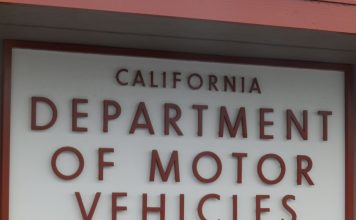”
No person shall … be deprived of life, liberty, or property,
without due process of law, nor shall private property be taken for
public use without just compensation.
”
– Amendment V, US Constitution
“No person shall … be deprived of life, liberty, or property, without due process of law, nor shall private property be taken for public use without just compensation.”
– Amendment V, US Constitution
Hurray for Councilman Craig Gartman! At least the city of Gilroy has one city councilman who can recognize and refrain from an abuse of power.
As reported in The Dispatch
(Feb 2, “City to seize land,” and Feb. 22, “Court reviews land seizure”) the city of Gilroy is considering exercising its power of eminent domain to seize three properties in downtown Gilroy, all located north of Seventh Street, between Monterey and Eigleberry.
The city wants to purchase the land for an art center. Unfortunately, the city behaved stupidly: instead of making simultaneous, contingent offers on all five properties, it bought two properties and made offers on the three others, offers which have so far been disdained.
Gartman identifies the central issues unerringly. He says eminent domain “should be reserved for the needs of the community … roadways, water well sites – things where you say, we have to use this land, where there is no other site the city can use.”
I agree unreservedly with those points: eminent domain should be used for needs, not wants, and an art center is not a need. And the site in question is not the only possible site for an art center. There are properties for sale all over town.
Moreover, I question whether the city can afford to spend money building an art center. At present, the federal government has cut back COPS, a funding program for local police. Now the city is agonizing over whether we can afford to retain all our police officers and buy them bullet proof vests. Yet we are going to build an art center?
The city is building a $27 million Taj Mahal police station, which is costing approximately $8 million more than we thought it would. Yet we have enough money to build and maintain an art center?
The city is offering rock-bottom prices for the properties: for example, $310,000 for two houses on .2 acres, plus $50,000 in relocation benefits. For comparison purposes, three blocks west, on Hanna Street, two houses on a similarly-sized lot were recently offered at $699,000 thus $360,000 hardly seems like the “just compensation” mandated by the Constitution.
The city has several buildings which are rarely used or unused. The Gilroy Museum at Fifth and Church is open four days a week. It was built in 1910 as a Carnegie Library, so the building is architecturally and historically interesting. The collection is interesting. It gets a few visitors, now and again.
The Wiley House, across the street, is less interesting and used less often. It is available for an astronomical rent for parties, receptions and such.
The Old City Hall is a magnificent building, a William Weeks original, fully retrofitted for earthquakes and remodeled into a fabulous restaurant. Alas, no one has been able to survive in it as a restaurant.
So, on the one hand, the city owns several beautiful properties, some of which are under-utilized, others of which are unused, as the city demands more rent than the market will bear. On the other hand, the city wants to buy land that the owners are unwilling to sell at a price the city wishes to pay. Say!
Why do we not sell the Wiley House and Old City Hall and use the proceeds to pay the Oyaos, Dongs, and Geras what they are asking? Or better yet, swap Old City Hall to the three families in exchange for their old houses, boarded-up, restaurant, storefronts, and vacant land?
The Oyaos could live in a portion of Old City Hall; the Dongs could open a restaurant in the remainder; the Geras can rake in profits and enjoy increased equity; the City could collect taxes on the Old City Hall property and have the land it wants for its art center. A win-win-win-win situation, for everyone except the lawyers, who will not be making any money from the looming eminent domain case.












